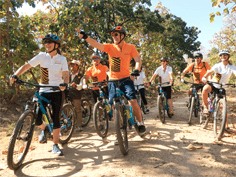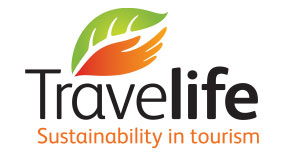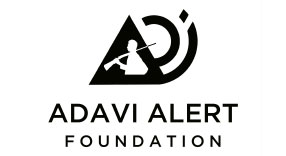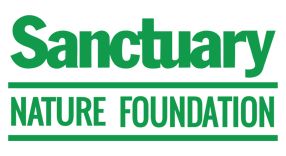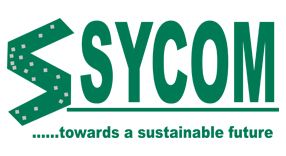Tiger Tops Tharu Lodge
Chitwan National Park, Nepal

The lodge has been built in the traditional Tharu long-house vernacular style.
Tiger Tops laid out the framework for sustainable and inclusive tourism in the sub-continent almost six decades ago – and still holds on to the same values. The Tharu Lodge, built in 1980, sets the bar for old-charm hospitality, low environmental impact and long-term support for conservation and social development in the area.
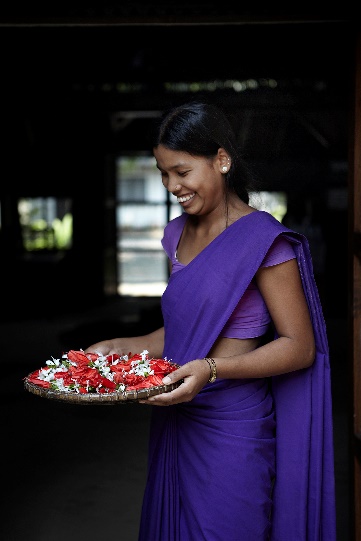
Read More
Staff recruitment favours local communities, especially disadvantaged groups and women with provision made for training and skills development. As much as 99% of their staff are from the local Nepalese area, including in management positions, bringing new skills and economic benefits to the area. Their staff retention is such that their longest-serving employee recently completed 50 years of service, and they have hired from the fourth generation of loyal staff families!
The lodge’s broader programme for community support is designed to
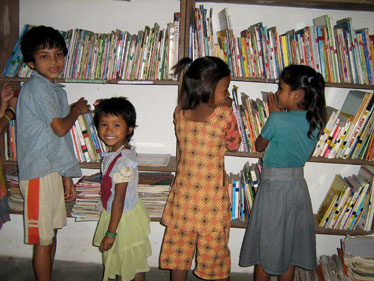
address local needs. Particularly notable is their co-funded Tiger Tops Swiss Air Pre School that provides a free head-start for children from disadvantaged families along with daily meals, nutritional and medical support. The lodge also covers teachers’ salaries in community schools with the support of guests. A Tharu Lodge Village Clinic has provided free treatment and 24/7 assistance for medical emergencies.
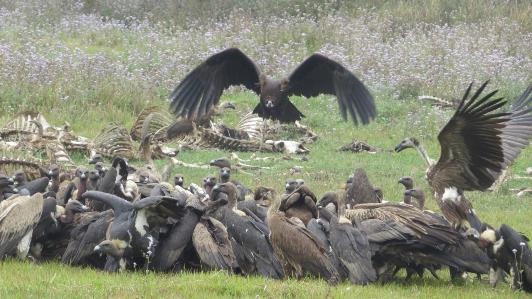
The lodge’s seven naturalists provide a hub of nature expertise – enhancing guest experiences, running student wildlife workshops and community training besides playing a vital role in monitoring and conservation.
The team works closely with forest department officials on anti-poaching and animal census initiatives. The Tiger Tops Long Term Tiger Monitoring Project, launched in 1980, has resulted in the collection of the largest set of data to-date on tiger ecology, territorial dynamics, turnover, reproduction and tiger survival. The lodge’s association with the Jatayu Vulture Restaurant initiative, brainchild of lodge manager D.B. Chaudhary, has played a key role in the government’s Vulture Conservation Action Plan for Nepal which is helping to save eight endangered species of vulture and has led to a 150% increase in vulture populations in the buffer zone over a three-year period. The lodge is also leading the way in elephant welfare management in Nepal.
The lodge’s sound ecological practice includes waste segregation and recycling through a local scrap merchant, solar power for hot water, energy and water conservation measures and a substantial organic farm providing food for the kitchen supplemented by locally purchased produce. The lodge has removed all single use plastics and is using steel bottles in guest accommodation and for jungle activities.
Read Less
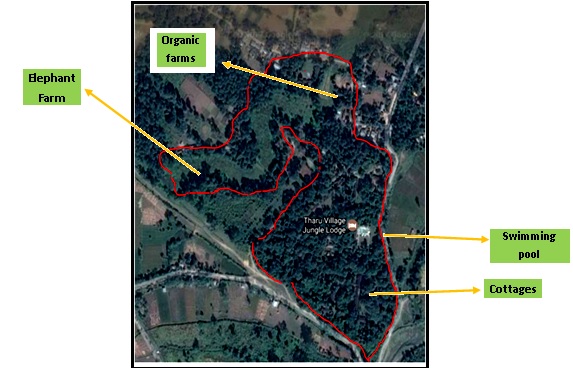
Indigenous planting for wildlife and water conservation; buildings occupy only 10-12% of the 25 acre site
Read more about Tharu Lodge’s Community Work
Read more about Tharu Lodge’s Wildlife Conservation Work
More examples of good practice
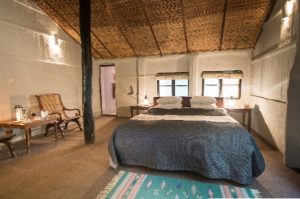
Built in traditional style with local materials, skills and decoration to preserve local heritage. The structure is made from local Sal wood with a tile roof. The walls are built from reeds, mud and dung, serving as a natural antiseptic to keep pests out.
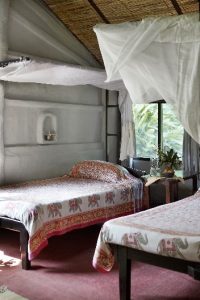
Room design exploits natural light and air circulation, reducing the need for daytime energy use.
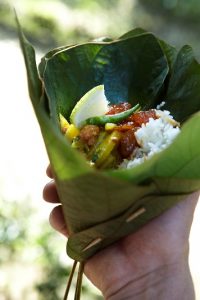
Local cuisine is provided for guests.
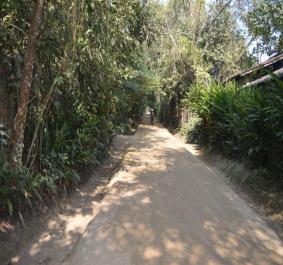
Pathways are made from natural material to allow rainwater to percolate into the ground.

Common and scientific naming of trees is in place.
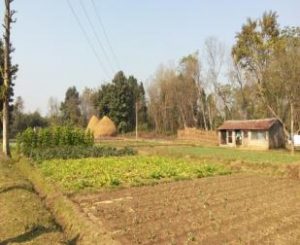
A substantial on-site organic farm contributes to daily kitchen needs. Local villagers are trained in organic farming practices. Local produce is used to the maximum possible extent.
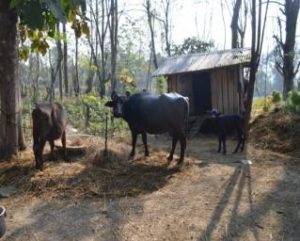
Dairy products are sourced from the lodge’s dairy.
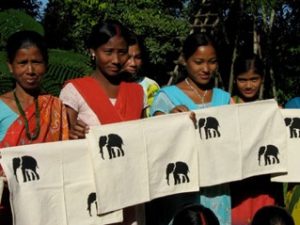
Mats hand-printed by a local women’s group are sold in the Tharu Lodge shop. The women benefit directly from the income generated, while a portion of the sales goes back into the Community Development Fund.
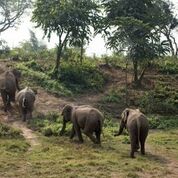
Domestic elephants are allowed to roam freely and follow their normal routines.
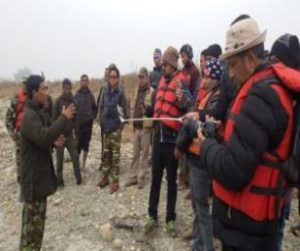
Lodge staff participating in the Asian Wildfowl Census.
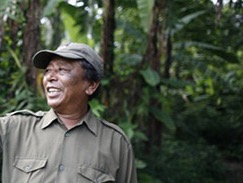
Dhan Bahadur Tamang, recipient of the TOFTigers Wildlife Tourism Award for Lodge Naturalist of the Year 2016, has expert knowledge of tiger populations through his field research – one of seven naturalists at the lodge. In October, it will be his 50th year.
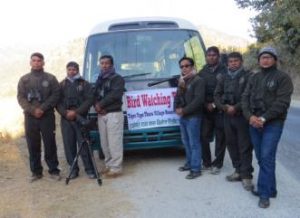
Facilitating bird watching and other nature activities.
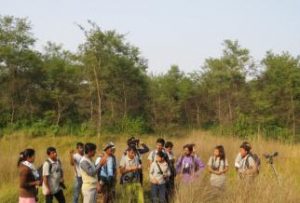
Conservation briefing for college students.
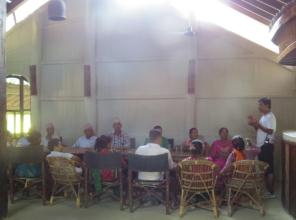
Briefing to the buffer zone community on conservation and eco-tourism.

Camera trapping since 1995 has been helping to record animal movements.
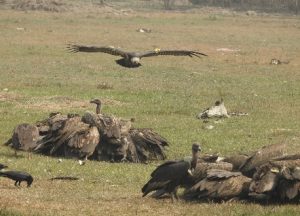
Jatayu Vulture Restaurant, a community-managed vulture restoration project, was the brainchild of the lodge manager.
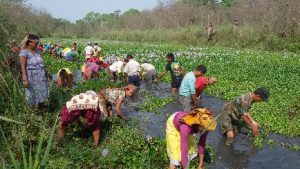
Community-based anti-poaching group at Jatayu Vulture Restaurant.
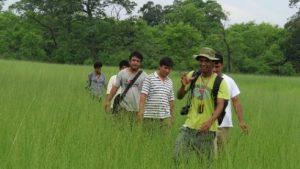
The clearance of invasive plant species on land surrounding Jatayu Vulture Restaurant has seen the population of critically-endangered Bengal Floricans increase.
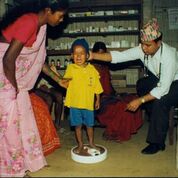
A health clinic at the lodge provided free medicine and treatment by trained Community Medical Assistance available 24/7 for medical emergencies. This is now offered when guest or partnership funds are available.
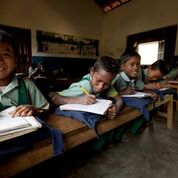
A pre-school founded and funded by Tiger Tops and Swissair Staff is providing a free start for children from disadvantaged families – part of a broader programme of social support.
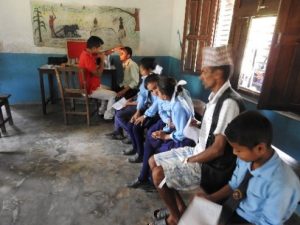
All students/staff are given annual eye check-ups at Tiger Tops Swissair School.
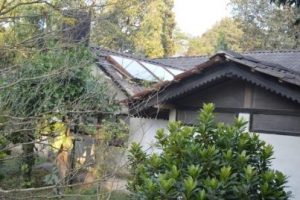
Solar power is used for guest hot water and elephant fencing.

LED lighting is used in the majority of places to reduce energy consumption; rooms have no TV. LPG is used as fuel for cooking instead of wood.
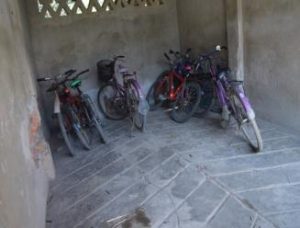
Bicycles for nature rides are provided to enhance guest experience and reduce carbon footprint
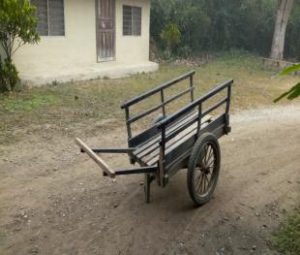
Hand carts are used for guest luggage.

Bullock carts are used for local transport to reduce carbon footprint.
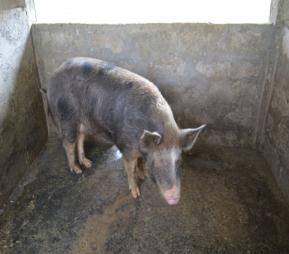
A piggery and bio-gas plant manage biodegradable waste; recyclable waste is segregated and appropriate materials are given to a local scrap merchant. The lodge has removed all single use plastics and uses steel bottles.
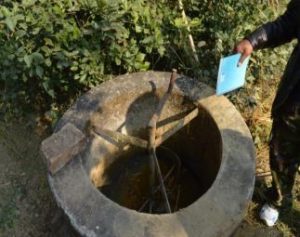
Biogas provides fuel for cooking at the school.
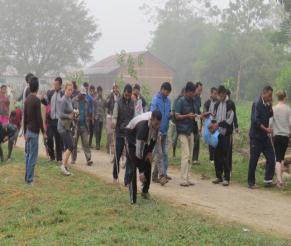
Village clean-up with staff and guests.
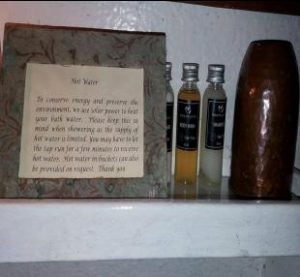
Guests are encouraged to conserve water; a reverse osmosis purifier is used; reusable water bottles are provided. Aerated water taps, low-flow showerheads and dual-flush systems are used to conserve water.



